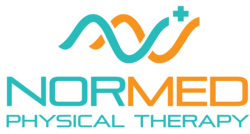Table of Contents
Embarking on a journey to improve your physical well-being through physiotherapy is an exciting step. But if you’re unsure about what to expect during your first visit, fret not! In this blog post, we’ll walk you through the process and create a picture of what awaits you in a friendly and supportive physiotherapy environment. So, let’s get started on this empowering journey together!
Warm Welcome and Assessment:
When you arrive at the physiotherapy clinic, expect to be warmly greeted by friendly staff who will guide you through the initial paperwork. During your first visit, your physiotherapist will conduct an assessment to better understand your condition, goals, and medical history. This assessment may include questions about your symptoms, a physical examination, and any relevant diagnostic tests or imaging.
Open Communication and Active Listening:
A vital aspect of your physiotherapy visit is effective communication. Your physiotherapist will listen attentively to your concerns, taking the time to understand your unique needs, goals, and any specific challenges you face. This open dialogue lays the foundation for a collaborative and personalized treatment plan.
Individualized Treatment Plan:
Based on the assessment findings and your goals, your physiotherapist will develop an individualized treatment plan tailored to your specific needs. This plan may include a combination of hands-on therapy, exercises, education, and modalities to address your condition, alleviate pain, enhance mobility, and improve overall function.
Hands-On Therapy:
Physiotherapy often involves hands-on therapy techniques provided by your physiotherapist. These techniques may include manual therapy, joint mobilization, soft tissue mobilization, or specialized techniques specific to your condition. Hands-on therapy aims to improve joint and muscle function, reduce pain, and enhance tissue healing.
Therapeutic Exercises and Rehabilitation:
Your physiotherapist will guide you through therapeutic exercises designed to address your condition and restore optimal movement patterns. These exercises may focus on strength, flexibility, balance, and coordination. Your physiotherapist will provide clear instructions, demonstrations, and modifications to ensure proper form and maximize the benefits of each exercise.
Education and Self-Management:
A key component of physiotherapy is empowering you to take an active role in your own recovery. Your physiotherapist will provide education about your condition, teach you self-management techniques, and offer strategies to prevent future issues. This knowledge equips you with the tools to manage your health outside of the clinic and make informed decisions about your well-being.
Supportive Environment:
Throughout your physiotherapy visits, you can expect a supportive and encouraging environment. Your physiotherapist and the clinic staff are there to guide you, answer your questions, and offer guidance every step of the way. They will celebrate your progress, provide motivation, and support you in overcoming any challenges you may face.
Ongoing Assessment and Treatment Adjustments:
Physiotherapy is a dynamic process that involves ongoing assessment and adjustments. Your progress will be regularly monitored, and your treatment plan may be modified based on your response and changing needs. Your physiotherapist will continuously evaluate your progress and ensure that you’re on track to reach your goals.
Conclusion:
Your first physiotherapy visit is an opportunity to embark on a transformative journey toward improved physical health. Expect a warm welcome, open communication, and an individualized treatment plan tailored to your specific needs. With hands-on therapy, therapeutic exercises, education, and ongoing support, your physiotherapy experience will be empowering and focused on helping you achieve your goals.
Embrace this journey with optimism, knowing that your physiotherapist is there to guide and support you every step of the way. Here’s to a fruitful and rewarding physiotherapy experience!
Disclaimer: This blog post is for informational purposes only and should not replace professional medical advice. If you have specific concerns or questions about physiotherapy or your health, consult with a qualified physiotherapist or healthcare provider.

